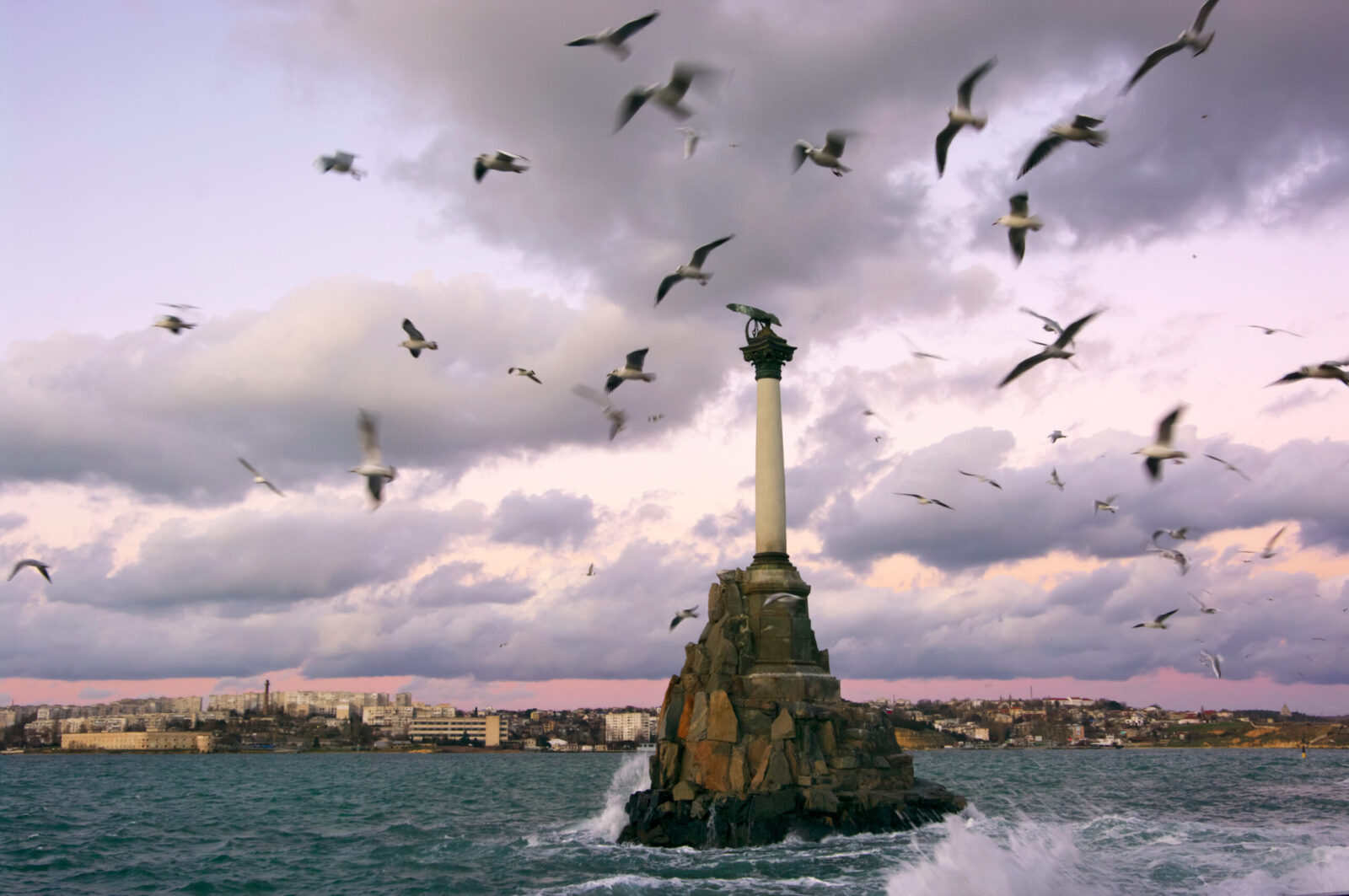Why Eurasia matters to the West
Whilst a number of states have recently expressed their desire to support Ukraine, many internal critics have challenged this outlook. The West must now commit to the region in order to avoid further conflict.
January 24, 2022 -
Mark Temnycky
-
Articles and Commentary

Monument to sunken ships in Sevastopol, in Russian occupied Crimea. Photo: Svetlana Lukienko / Shutterstock
Earlier this month, officials from the United States, NATO and the Organisation for Security and Cooperation in Europe met with Russian dignitaries to discuss the recent military build-up near Eastern Ukraine.
To date, the international community has condemned Moscow’s aggressive behaviour. Over the past few decades, Russia has launched military incursions into Georgia and Ukraine, occupied parts of Moldova and the Caucasus, meddled in international elections, and orchestrated several cyber-attacks. The West has implemented numerous sanctions to punish Russia, but the Kremlin has still not altered its behaviour.
While western political leaders and elected officials have expressed their solidarity with these Eurasian states, others have been less keen. Over the past few weeks, fellows at prominent think tanks, news pundits, editors, and former government officials across the US have expressed their opinions on NATO expansion and Russian aggression. Their arguments centre around three themes. Firstly, they believe that providing military assistance to Ukraine or Georgia would destabilise the conflicts in these states. Secondly, these countries should not be allowed to join NATO. Finally, they argue that these Eurasian states are not strategically significant to the United States or Europe.
This cannot be further from the truth.
Russia has endured severe costs since its illegal annexation of Crimea and its military incursion into the Donbas region. The Russian Federation has spent billions of US dollars annually occupying these territories. Russia’s assault on Ukraine has also resulted in the deaths of over 14,000 and the displacement of nearly two million. If the West was to provide lethal weaponry to Ukraine, however, this could deter the Russians. A better-equipped Ukrainian military would be able to delay a second Russian invasion, but this would lead to many more deaths. Russian President Vladimir Putin understands these potential consequences. He would most likely not want to risk his high domestic popularity rating for a failed and deadly operation in Eastern Ukraine.
Opponents of western expansion also argue that admitting countries such as Georgia, Moldova and Ukraine into organisations such as the European Union and NATO would aggravate Russia. They claim that Russia would no longer meddle in these countries’ affairs if they simply renounced their western aspirations.
These critics should be reminded that these countries were invaded before they announced such desires. It could be argued that the absence of these countries from western organisations ultimately allowed the Russians to meddle in their affairs. Since the 1990s, Russia has occupied Transnistria in Moldova, Abkhazia and South Ossetia in Georgia, Crimea and the Donbas in Ukraine, and the Nagorno-Karabakh region of Azerbaijan. Meanwhile, Belarus has slowly morphed into a Russian client state. With the recent events in Kazakhstan, Russia sent thousands of troops to the Central Asian state to mitigate the situation. Had these countries joined western organisations following the collapse of the Soviet Union, then perhaps they would not have been invaded.
Finally, there are several reasons why the West should care about Eurasia. First, several regional countries, particularly Ukraine, serve as a buffer zone between Russia and the West. Capturing Ukraine would give Russia direct access to the heart of Europe. This would put Moldova, the Caucasus and Central Europe on edge as it could lead to future conflicts between Russia and the West. A certified Nord Stream 2 would also give Moscow additional leverage over the European continent, as it would become heavily reliant on Russian gas. This was most apparent during the recent European energy crisis.
Second, Georgia, Moldova and Ukraine will become regional success stories if they are able to enhance their democratic processes. Reforming their governments, promoting transparency, and eliminating corruption would strengthen these countries’ democracies and national security. It would demonstrate to other countries in the region that they can distance themselves from their authoritarian past. Recent protest movements in Eurasia have shown that citizens in these countries want their governments to treat them with dignity and respect. Promoting and establishing democracies in these Eurasian states would achieve this goal.
Third, if the West fails to defuse the situation with Russia, this will demonstrate that the West cannot hold aggressive states accountable for their behaviour. Authoritarian rulers would continue to meddle in the affairs of their neighbours without consequence, and international law would become meaningless.
Overall, the US, NATO and OSCE must pressure the Kremlin to alter its behaviour. If these western officials can successfully deter Russia, this will lead to a freer and more prosperous Eurasia. It will also create greater stability in the region. But if the West attempts a new reset with Russia, this will signal to autocrats around the world that it cannot hold these countries accountable for their actions. This would lead to greater instability around the globe, and such an outcome would be both dangerous and costly.
Mark Temnycky is an accredited freelance journalist covering Eastern Europe and a nonresident fellow at the Atlantic Council’s Eurasia Center.
Dear Readers - New Eastern Europe is a not-for-profit publication that has been publishing online and in print since 2011. Our mission is to shape the debate, enhance understanding, and further the dialogue surrounding issues facing the states that were once a part of the Soviet Union or under its influence. But we can only achieve this mission with the support of our donors. If you appreciate our work please consider making a donation.

































